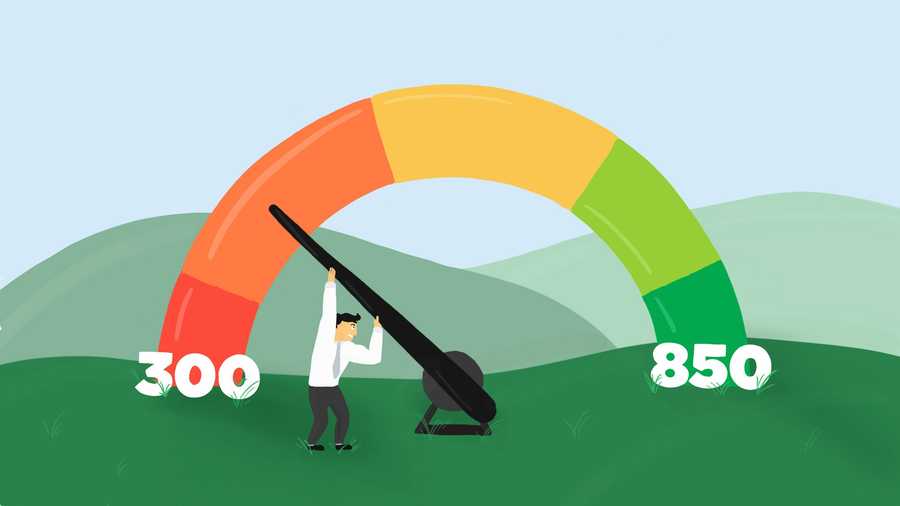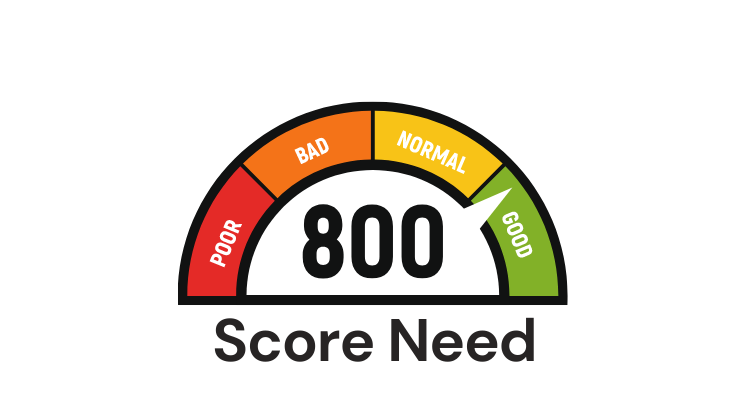
Are you stuck with a low credit score of 300? Maybe you have a 450 credit score and feel stuck there as well. Fixing your credit is possible, and it doesn’t have to take forever. In just 30 days, you can start making positive changes to improve your credit score.
This article will show you how step-by-step. We’ll explain what affects your 300 credit score, how to deal with negative items, and how to build good credit habits. You’ll have the tools and knowledge to turn your financial situation around.
Factors Affecting Credit Scores
Your credit score is influenced by several key factors. Understanding how these factors impact your score is essential for improving it effectively.
- Payment History: The most critical factor is your payment history. Making timely payments on your credit accounts demonstrates responsible financial behavior and positively affects your credit score. Always strive to pay your bills on time.
- Credit Utilization: Credit utilization refers to the percentage of available credit you’re using. Aim to keep your credit utilization below 30% to show that you are using credit responsibly.
- Length of Credit History: The length of your credit history plays a role in determining your creditworthiness. A longer credit history demonstrates stability and responsible credit management.
- Credit Mix: Having a diverse mix of credit accounts, such as credit cards, loans, and mortgages, can positively impact your credit score. This shows that you can handle different types of financial obligations responsibly.
- New Credit Applications: Avoid applying for multiple credit accounts within a short period. Each application triggers a hard inquiry, which temporarily lowers your credit score.
Evaluating Your Current Financial Situation
- Obtain a Copy of Your Credit Report: Request a free copy of your credit report from each of the three major credit bureaus (Experian, Equifax, and TransUnion) to review your credit history and identify any errors or discrepancies.
- Analyze Your Credit Report: Carefully examine your credit report for inaccuracies, such as accounts you didn’t open or incorrect payment information. Dispute any errors you find to have them corrected.
- Identify Areas for Improvement: Look for negative items on your credit report, such as late payments, collections, or bankruptcies. Identify areas where you can make improvements in your financial habits to prevent similar negative items from occurring in the future.
Creating a Plan for Credit Score Improvement

- Set Achievable Goals: Determine specific and realistic goals for improving your credit score. For example, aiming to increase your score by 50 points within 30 days is more attainable than expecting a massive leap.
- Prioritize Debt Repayment: Create a budget and allocate funds to pay off outstanding debts. Focus on high-interest debts first or those that are closest to being fully paid off.
- Develop a Payment Strategy: Contact your creditors to discuss payment arrangements or settlements. Negotiate feasible repayment plans that fit your financial situation.
- Build Positive Credit History: Use credit responsibly by making small purchases and paying them off in full and on time each month. Consider becoming an authorized user on someone else’s credit card or opening a secured credit card to establish a positive credit history.
Addressing Negative Items on Your Credit Report
- Communicate with Creditors: Contact your creditors to discuss any negative items on your credit report. Work out payment plans or negotiate settlements to resolve outstanding debts.
- Dispute Errors: If you find errors on your credit report, formally dispute them with the credit bureaus. Provide evidence supporting your claim and request the removal or correction of inaccurate information.
Building Positive Credit Habits
- Pay Bills on Time: Make it a priority to pay all your bills by their due dates. Consider setting up automatic payments or reminders to ensure you don’t miss any deadlines.
- Reduce Credit Card Balances: Pay down your credit card balances to lower your credit utilization ratio. Aim to keep your balances well below the credit limit to show responsible credit management.
- Open a Secured Credit Card: If you have difficulty qualifying for a traditional credit card, consider opening a secured credit card. This type of card requires a cash deposit as collateral and can help you establish or rebuild credit.
- Monitor Your Credit Reports: Regularly review your credit reports to track your progress and identify any new issues. You can access free credit reports annually from each of the major credit bureaus.
Seeking Professional Assistance
- Credit Counseling Services: Consider working with a reputable credit counseling agency that can guide managing your debts, budgeting, and improving your credit.
- Credit Repair Agencies: Research and choose a trustworthy credit repair agency if you require assistance with disputing inaccuracies on your credit report. Be cautious of any company promising instant results or charging exorbitant fees.
Tracking Your Progress and Staying Motivated
- Utilize Online Tools: Take advantage of online resources and credit monitoring tools to track changes in your credit score and receive personalized tips for improvement.
- Celebrate Milestones: Acknowledge and celebrate your achievements along the way. Whether it’s paying off a debt or seeing your credit score increase, each milestone brings you closer to your goal.
- Maintain a Positive Mindset: Remember that improving your credit score takes time and perseverance. Stay committed to your long-term financial goals and maintain a positive outlook on your journey to better credit.
Conclusion
Improving a 300 credit score within 30 days requires dedication and a strategic approach. By understanding the factors affecting your credit score, assessing your current financial situation, and implementing positive credit habits, you can gradually repair and rebuild your credit.
Addressing negative items, managing your debts responsibly, and seeking professional assistance when needed are essential steps toward achieving a healthier credit profile. With patience and determination, you can set yourself on the path to a better credit score and improved financial well-being. Start your journey today and pave the way to a brighter financial future.
